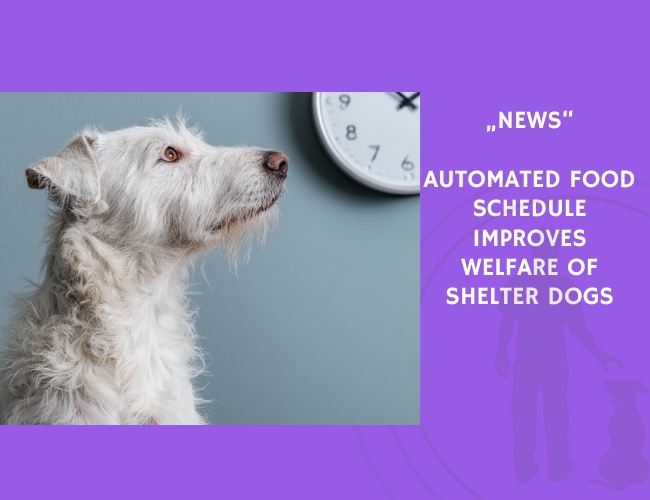A recent study published in the Journal of the Experimental Analysis of Behavior evaluated how an **automated response-independent feeding schedule**—known in applied behavior analysis as **noncontingent reinforcement (NCR)**—impacts the behavior and sound environment of **shelter dogs**.
The researchers, led by **E. Fernandez**, implemented a **6-week reversal design** comparing baseline conditions with a **fixed-time 1-minute food schedule**. This schedule delivered food automatically at set intervals, regardless of the dog’s behavior. The study measured **eleven behaviors**, **kennel location data**, and both **overall and session-based sound intensity** in decibels (dB).
Key findings included:
- Increased **overall activity** and decreased **inactivity** in the dogs during fixed-time food delivery.
- A noticeable **reduction in overall kennel noise**, suggesting a calmer environment.
- Less consistent changes in moment-to-moment and hourly sound levels, indicating possible **contextual conditioning effects**.
This research suggests that **noncontingent food schedules** may serve as a practical and scalable welfare strategy in **shelter environments**, where staff time is limited and dogs often exhibit stress-related behaviors. By providing rewards that are not dependent on specific actions, the schedule appears to **decrease frustration and promote engagement** without reinforcing unwanted behavior.
The findings also open avenues for **translational behavior research**, linking concepts from experimental analysis to applied settings in animal care. Future studies are encouraged to fine-tune methods of measuring sound and explore additional enrichment strategies.
Source: E. Fernandez, W. Anderson, A. Kowalski. Published in Journal of the Experimental Analysis of Behavior, May 4, 2023.










